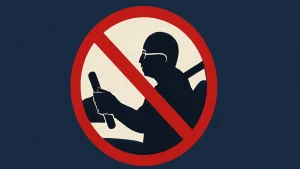When the calendar turned to July 2025, a subtle but significant change began reshaping life on America’s roads. A new federal regulation — requiring more frequent driver’s license renewals and safety checks for older adults — quietly took effect.

Now, as of November 2025, the rollout is in full swing, and millions of senior drivers are adapting to what the U.S. Department of Transportation (DOT) calls a “safety-with-dignity” approach.
The rule, adopted across all 50 states, targets drivers aged 70 and older, introducing shorter renewal cycles, mandatory in-person vision screenings, and, in some cases, annual road tests for individuals showing signs of impairment or high risk.

Transportation Secretary Pete Buttigieg summarized the intent in a July statement:
“We’re not here to take the keys away at 70. We’re here to make sure our roads stay safe, while giving seniors every chance to stay on them.”
Also Read State Pension Faces Historic Shake-up -2026 Could Mark the Biggest Change in Decades
State Pension Faces Historic Shake-up -2026 Could Mark the Biggest Change in Decades
New U.S. Driving License Rule for Seniors Begins November 2025
The DOT cites demographic realities behind the change. The U.S. now has more than 48 million licensed drivers aged 65 or older, according to the Federal Highway Administration — a number expected to grow sharply through the 2030s as Baby Boomers and early Gen Xers enter retirement.

Driving is not just a convenience for seniors; it’s a vital link to independence. It enables daily tasks such as grocery shopping, doctor’s visits, and social engagement. But with aging comes natural changes in reaction time, vision, and cognitive processing, which can increase crash risks.
Federal crash data shows that while older drivers tend to be cautious, they are more likely to suffer serious injuries or fatalities in collisions due to physical fragility — even in minor crashes.

The new rule aims to strike a balance: keeping seniors mobile while protecting them and others on the road.
Key Requirements of the 2025 Senior Driver Rule
The new policy doesn’t revoke licenses at age 70. Instead, it sets a national baseline for testing and renewal frequency, leaving states some flexibility in how they implement it.
Core Federal Requirements
- Mandatory in-person renewals for all drivers aged 70 and above.
(Online or mail-only renewals are no longer permitted.) - Vision screenings required at every renewal.
- Confidential reporting: Doctors, family members, or law enforcement can alert the DMV if they believe a driver poses a safety risk.
- Annual road tests possible for drivers flagged for review due to health or performance concerns.
States can strengthen these standards further — and many already have:
| State | Added Requirement |
|---|---|
| California | Brief on-road driving test for drivers 75+ |
| Florida | Cognitive screening questions at renewal |
| Texas | Renewal period reduced from six years to two for drivers over 70 |
According to the National Highway Traffic Safety Administration (NHTSA), these layered approaches aim to reduce fatal crashes involving older drivers by as much as 10–15% over five years.
What Happens If a Senior Fails a Test
Failing a road or vision test does not automatically result in a license loss. Instead, most states will issue a restricted license, allowing seniors to continue driving under specific conditions, such as:
- Daytime-only driving
- Local travel only (within a set radius of home)
- No freeway or highway driving
A DOT policy advisor explained that the focus is on safety, not punishment:
“It’s not about taking away independence. It’s about matching a person’s driving ability with realistic conditions that keep everyone safe.”
Community Mobility and Independence Options
Recognizing that not all seniors will continue driving indefinitely, the federal rollout also includes funding for mobility alternatives. Many state and local agencies are expanding senior transportation programs with federal grants.
Examples of Supported Programs
- Senior shuttles: Free or low-cost rides to grocery stores and medical appointments.
- Volunteer driver networks: Operated by nonprofits in smaller towns and suburbs.
- Ride-share discounts: Partnerships with Uber, Lyft, and Via to provide subsidized fares for seniors without smartphones.
According to the Administration for Community Living, participation in these programs has grown 24% since early 2024, indicating a growing demand for flexible mobility options.
Concerns and Criticism from Senior Advocates
While the DOT describes the rule as a safety-first measure, not all advocacy groups are convinced. Organizations like the AARP and National Council on Aging have raised concerns about potential misuse of the reporting process and the burden on rural seniors.
Critics argue that in areas without robust public transportation, frequent in-person renewals and road tests could make life harder for seniors who depend on driving to stay active.
Federal officials have responded that reporting remains confidential and is verified through medical or behavioral assessments before any license restrictions are imposed.
“Decisions won’t be made on suspicion alone,” said Lydia Ramos, a senior transportation policy analyst at DOT. “Each case will be reviewed by certified evaluators trained in aging and mobility.”
The Broader Impact: Age-Aware Transportation Policy
The senior driver regulation reflects a broader shift in U.S. transportation planning — one that adapts to the country’s aging population while maintaining safety for all road users.
By standardizing renewal intervals and testing protocols, the rule brings national consistency to an issue long managed unevenly at the state level.
Experts view it as part of a wider move toward “mobility management” — integrating public transit, ride-share options, and medical transport into a seamless system designed to support aging in place.
Secretary Buttigieg emphasized that point:
“Age alone isn’t the problem. The goal is to make sure every driver, regardless of age, has the ability to safely navigate today’s roads.”
FAQs
Do I lose my license when I turn 70?
No. The rule only requires more frequent in-person renewals and a vision screening.
Are these rules the same in every state?
Not entirely. The federal regulation sets the baseline, but states can add stricter renewal or testing requirements.
What if I fail a vision or road test?
You may qualify for a restricted license, allowing daytime or local driving rather than a full suspension.
Can someone report me to the DMV?
Yes. Physicians, law enforcement, or family members can file a confidential report if they believe you pose a safety risk.
What if I voluntarily stop driving?
Check with your local transit or aging services office for shuttle programs, volunteer drivers, or discounted ride-share options.
Safety Without Sacrificing Freedom
The 2025 senior driving rule underscores a national effort to balance safety with independence. For millions of Americans, driving represents freedom — but it must coexist with responsibility and awareness.
By prioritizing testing, support, and community alternatives, the new framework aims to help seniors remain active, connected, and safe behind the wheel for as long as possible.
As one policy advisor put it: “The goal isn’t to end driving at 70 — it’s to help people drive well at 80.”

